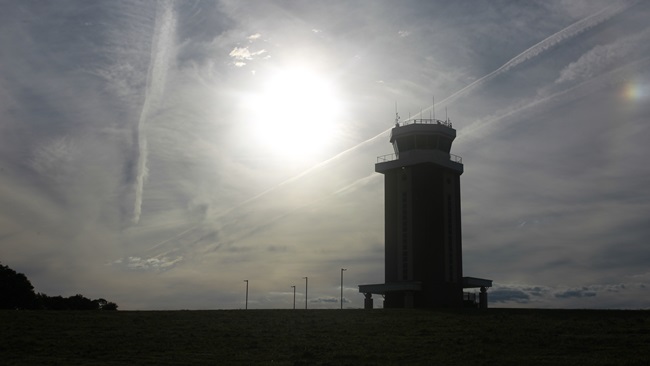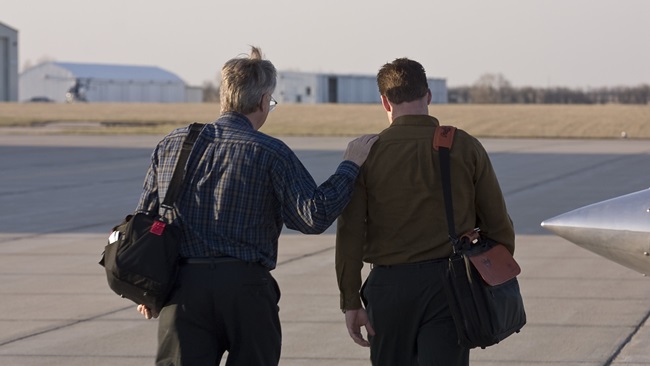AOPA hosts fuels presentation at NASAO conference
Rep. Rokita gives update on third class medical reform
State and local aviation officials recently learned about the latest efforts to transition from 100LL avgas to an unleaded fuel and got an update on the initiative to reform third class medical certification.The officials gathered Sept. 7 through 9 with AOPA, FAA senior staff and regional administrators, Rep. Todd Rokita (R-Ind.), and others during the National Association of State Aviation Officials conference in Providence, Rhode Island.
AOPA officials attended and presented at the conference in an ongoing effort to build relationships with state and local officials who regulate aviation. Rob Hackman, AOPA vice president of regulatory affairs, led a panel with FAA and General Aviation Manufacturers Association participation on the Piston Aviation Fuels Initiative, the program created to find and transition to a replacement for 100LL avgas. AOPA wanted to ensure that state aviation officials are aware of the progress being made on replacing 100LL avgas, and help them manage the changeover to the new fuel.
Rokita, a pilot and member of the House General Aviation Caucus since 2011, gave an update on the General Aviation Pilot Protection Act that he co-authored. The bill would help pilots, spur innovation and economic growth, and ensure air safety. In his remarks, he noted that he has worked with the FAA, NASAO, AOPA, Experimental Aircraft Association, General Aviation Manufacturers Association, and other groups in his role as a caucus member.
The bill is “one of the highest priorities of the General Aviation Caucus and biggest pieces of aviation legislation pending before Congress. It’s a bill I co-authored with Sam Graves, another Midwesterner with strong beliefs concerning the primacy of aviation to our national agenda,” said Rokita. “Arkansas’ Sen. John Boozman of the Senate’s GA Caucus introduced identical legislation in the Senate to reform so-called third Class Medical Certification for private pilots.”
The GA Caucus sent a letter on Aug. 22 to Department of Transportation Secretary Anthony Foxx to follow up on the one Rokita and Graves sent only weeks earlier. “The GA Caucus asked the secretary to expedite his review of a proposed FAA rule-change and pass his recommendations within 30 days to the Office of Management and Budget in the White House,” said Rokita. “Opening aviation to more pilots and improving our economy and prospects in the 21st century—where the country should be an aviation leader, as it has always been—will proceed. By either a legislative or regulatory path, I’m confident we’ll reform the bureaucracy, as the General Aviation Caucus has done with success.”
In addition to learning more about these national topics and listening to a keynote address by FAA Administrator Michael Huerta, the officials also learned more about how they can protect airports in their states.
State aviation agencies play a critical role in supporting and regulating America’s public-use airports, and in many states, these agencies directly own and operate airports, said Greg Pecoraro, AOPA vice president of airports and state advocacy. “They are actively engaged in protecting those airports and planning for their future. They often play an important role in providing expertise to local governments that sponsor airports but lack the technical expertise to make important decisions,” he said.
“When organizations like NASAO hold their annual conference, it is a valuable opportunity for AOPA government affairs staff to meet with them and share perspectives on important policies that affect GA in the states,” said Pecoraro. “AOPA staff work hard to build and retain the relationships with aviation officials at every level of government to protect our members’ interests. Gatherings like these are a great opportunity to participate in the dialogue between federal and state officials, and make sure that pilot concerns are recognized by state aviation agencies.”


